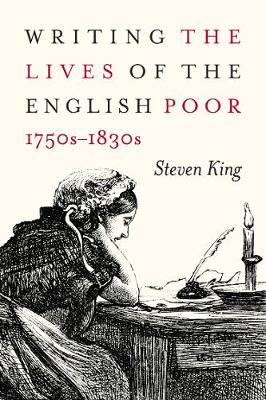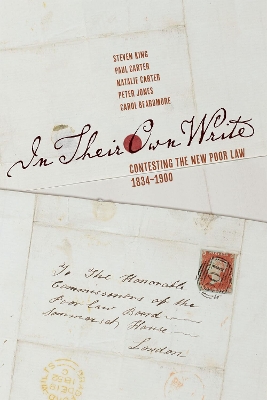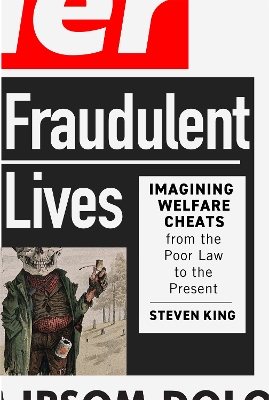States, People, and the History of Social Change
3 total works
In Their Own Write
by Steven King, Paul Carter, Natalie Carter, Peter Jones, and Carol Beardmore
Few subjects in European welfare history attract as much attention as the nineteenth-century English and Welsh New Poor Law. Its founding statute was considered the single most important piece of social legislation ever enacted, and at the same time, the coming of its institutions - from penny-pinching Boards of Guardians to the dreaded workhouse - has generally been viewed as a catastrophe for ordinary working people.
Until now it has been impossible to know how the poor themselves felt about the New Poor Law and its measures, how they negotiated its terms, and how their interactions with the local and national state shifted and changed across the nineteenth century. In Their Own Write exposes this hidden history. Based on an unparalleled collection of first-hand testimony - pauper letters and witness statements interwoven with letters to newspapers and correspondence from poor law officials and advocates - the book reveals lives marked by hardship, deprivation, bureaucratic intransigence, parsimonious officialdom, and sometimes institutional cruelty, while also challenging the dominant view that the poor were powerless and lacked agency in these interactions. The testimonies collected in these pages clearly demonstrate that both the poor and their advocates were adept at navigating the new bureaucracy, holding local and national officials to account, and influencing the outcomes of relief negotiations for themselves and their communities.
Fascinating and compelling, the stories presented in In Their Own Write amount to nothing less than a new history of welfare from below.
The Western welfare state model is beset with structural, financial, and moral crises. So-called scroungers, cheats, and disability fakers persistently occupy the centre of public policy discussions, even as official statistics suggest that relatively small amounts of money are lost to such schemes.
In Fraudulent Lives Steven King focuses on the British case in the first ever long-term analysis of the scale, meaning, and consequences of welfare fraud in Western nations. King argues that an expectation of dishonesty on the part of claimants was written into the basic fabric of the founding statutes of the British welfare state in 1601, and that nothing has subsequently changed. Efforts throughout history to detect and punish fraud have been superficial at best because, he argues, it has never been in the interests of the three main stakeholders – claimants, the general public, and officials and policymakers – to eliminate it.
Tracing a substantial underbelly of fraud from the seventeenth century to today, King finds remarkable continuities and historical parallels in public attitudes towards the honesty of welfare recipients – patterns that hold true across Western welfare states.


